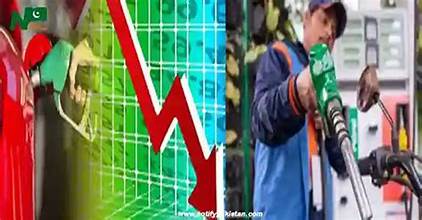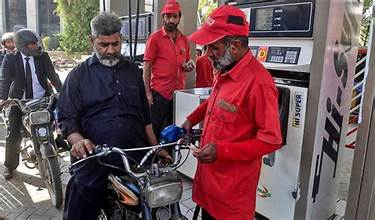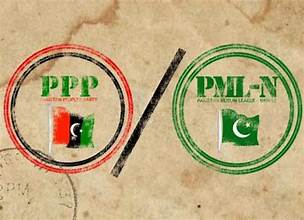Petrol prices in Pakistan have always remained one of the most sensitive issues for citizens and policymakers alike. With a large portion of the population dependent on fuel for daily commuting, transport of goods, agriculture, and industrial activity, any fluctuation in petrol rates directly impacts the economy and household budgets. Recently, reports suggest that Pakistan is likely to witness a drop in petrol rates, a development that brings relief for consumers already burdened by rising inflation and financial instability.
In this blog, we will explore the factors contributing to this expected reduction, its impact on different sectors, the challenges that still exist, and what this potential price adjustment means for the average citizen.
Factors Behind the Expected Drop in Petrol Prices
The possible decline in petrol prices in Pakistan is tied to several international and domestic factors:
1. Global Oil Market Trends
Crude oil prices in the international market have shown signs of moderation in recent weeks. Whenever global oil prices decline, importing countries like Pakistan benefit, provided exchange rate fluctuations do not offset these gains. The decrease in crude prices is mainly due to balanced global supply and reduced demand projections in some regions.
2. Strengthening of the Pakistani Rupee
Currency stability plays a crucial role in determining petrol rates. If the Pakistani rupee gains strength against the US dollar, the cost of importing petroleum products reduces, allowing for price relief domestically. Any recent improvements in foreign reserves and inflows from international financial institutions have supported the rupee’s position.
3. Government’s Pricing Formula
Petrol prices in Pakistan are revised every 15 days, based on international oil rates and local taxes. If the government decides not to increase petroleum levy or sales tax rates, consumers may see a direct reflection of international market trends in local fuel prices.
4. Demand and Supply Balance
Lower demand for petroleum products during certain months also impacts pricing decisions. Reduced consumption allows room for adjustment in prices without burdening the economy.
Impact of Petrol Price Reduction
A decrease in petrol prices has a ripple effect across the economy, influencing multiple sectors and day-to-day life.
1. Relief for Households
For ordinary citizens, lower petrol prices mean reduced transportation costs. From daily commuting to school runs, a fall in fuel rates directly reduces monthly expenses for families already struggling with high food and utility prices.

2. Transport and Logistics Sector
Public transport operators and goods transporters are among the biggest beneficiaries of fuel price drops. A reduction in petrol rates can lead to lower fares and freight charges, eventually helping businesses that rely on distribution and logistics.
3. Agriculture Sector
Agriculture in Pakistan heavily depends on fuel for tractors, tube wells, and transportation of crops. Cheaper petrol reduces the overall cost of farming, which could help stabilize food prices in markets.
4. Industrial Growth
Industries, particularly those that rely on generators due to energy shortages, benefit from reduced petrol and diesel costs. Lower input costs can enhance competitiveness and boost production.
Pakistan Likely to Witness Drop in Petrol Rates
5. Inflationary Pressure
Petrol prices directly impact inflation. A reduction in fuel rates generally leads to a decrease in the overall cost of goods and services, providing relief in inflationary trends that have been troubling Pakistan’s economy for months.
Challenges That Still Remain
While the expected reduction in petrol prices is positive news, several challenges could undermine its impact:
1. Volatile Global Oil Market
The global oil market remains highly unpredictable. Any sudden disruption in supply chains or geopolitical tensions can immediately push prices upward again.
2. Domestic Tax Policies
The government heavily relies on petroleum levy and sales tax for revenue generation. Any sudden financial pressure may compel the authorities to increase taxes, neutralizing the impact of declining international oil prices.

3. Exchange Rate Instability
If the Pakistani rupee weakens against the US dollar, the benefit of lower international oil prices may not fully pass on to consumers. Exchange rate management remains a critical factor in fuel pricing.
4. Limited Long-Term Strategy
Price adjustments provide temporary relief, but Pakistan needs a comprehensive energy strategy. Heavy dependence on imported fuels leaves the economy vulnerable to external shocks.
What This Means for the Common Citizen
For the average Pakistani citizen, even a small reduction in petrol prices feels like a major relief in times of financial hardship. Daily wage earners, small business owners, students, and families all benefit in different ways. For instance:
- Rickshaw and taxi drivers may experience better earnings as fuel costs reduce.
- Small shopkeepers and vendors could benefit from lower transport expenses.
- Families with private vehicles would save on daily commuting costs.
This sense of relief also has a psychological impact. Lower petrol prices often bring a wave of optimism in markets and households, which can translate into improved consumer confidence.
The Road Ahead
While the potential drop in petrol rates is good news, Pakistan needs to focus on building a sustainable energy strategy. Reducing reliance on imported oil by investing in renewable energy sources, hydropower, and local exploration projects is crucial for long-term stability.
Moreover, the government should ensure transparent pricing mechanisms so that any relief in global oil markets directly benefits citizens without being overshadowed by excessive taxation. Policymakers must also work on stabilizing the currency, as a stronger rupee helps shield the economy from global fluctuations.
Conclusion
The news that Pakistan is likely to witness a drop in petrol rates has generated hope for millions struggling under economic pressure. While the reduction may provide temporary relief in transportation, agriculture, and household budgets, it is essential to recognize the volatility of the global oil market and the challenges at home.
For now, a fall in petrol prices will ease inflationary pressures and improve the financial outlook for citizens. However, sustainable economic policies, energy diversification, and fiscal discipline are necessary to ensure that such relief does not remain short-lived.



